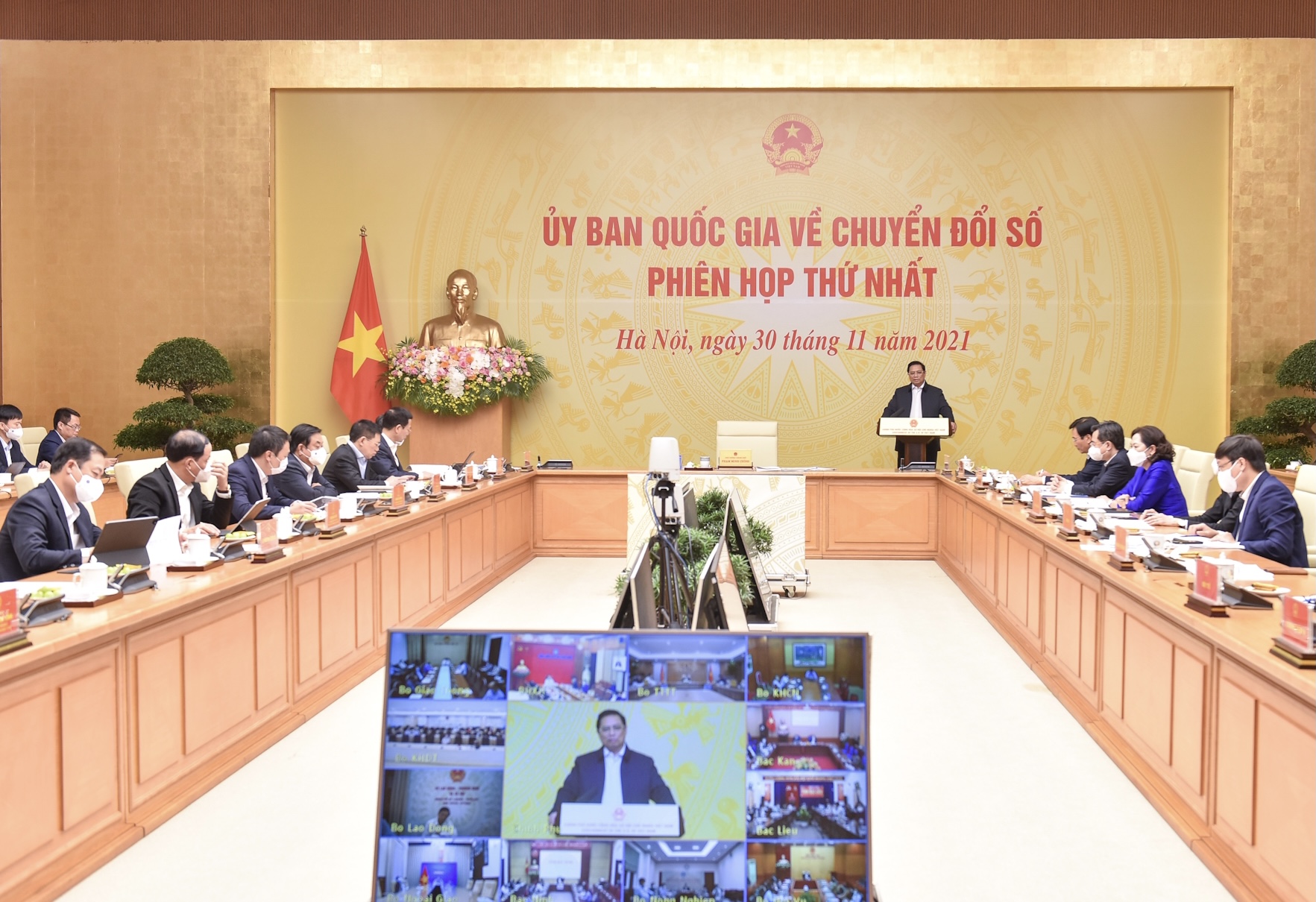
Prime Minister Pham made the above statement at the first meeting of the National Committee on Digital Transformation on Tuesday.
He hailed ministries, agencies and localities for their achievements in digital transformation, especially in three pillars of digital Government, digital economy and digital society.
At the same time, the PM pointed to outstanding shortcomings in the field, such as a low ranking in terms of e-Government, the incomplete legal environment for e-Government and slow progress of building national and specialized databases.
Speaking at the meeting, Minister of Information and Communications Nguyen Manh Hung said digital transformation in Viet Nam is more like an institutional revolution rather than technology, thus the Government should lead the way, including the building of digital institutions.
Government spending on digital transformation would help create a digital transformation market for digital enterprises, Nguyen added.
Viet Nam has many advantages in economic development and digital transformation, notably a fast-growing and highly open economy, as evidenced by the fact that the Southeast Asian country has signed 17 free trade agreements with 60 economies, including major markets such as the US, the European Union, Japan, China, the Republic of Korea, and the Association of Southeast Asian Nations (ASEAN).
Viet Nam has also adopted a national digital transformation program to 2025, with the dual purpose of developing digital economy, digital society, and digital government, and establishing Vietnamese digital businesses with global capacity.
This program is closely linked with other programs on green growth and climate change and the Government targets to raise the share of the digital economy in GDP to 20 per cent by 2025 and 30 per cent by 2030./.
